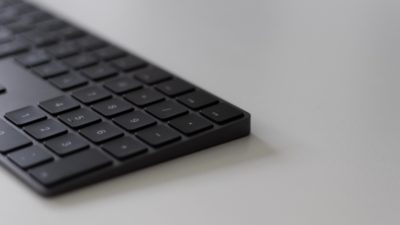In the post lockdown working environment online interviews look like they are here to stay. There are elements of efficiency on both sides and can be arranged more flexibly around people’s working day. But how to navigate the online interview and what differences are there to an in person interview?
A lot of the interview preparation remains the same:
Do research the company
- Find out as much as you can about the organisation before the interview
- Check out the firm’s web site for its mission statement and goals
- Search for media coverage
- If possible, talk to someone who currently works at the organisation or has worked there in the past
By using this information to help you prepare, you demonstrate initiative and convey your interest and enthusiasm in joining the company
- Do make the best first impression possible, dress as you would for an in person interview but with the advantage of staying in your slippers!
- The interview begins as soon as you logon
- Make sure that you have the right browser/app for whatever platform is being used and test your camera and sound beforehand if possible
- Position the device that you are using so that you appear at a flattering angle and that it won’t fall over mid interview
- Ideally try to avoid a busy environment so that nothing can distract you
Interview tips and advice:
The way you handle yourself during the interview is only one of several factors that ultimately determines whether you get the job, but it is one of the most important, nonetheless.
The good news is you can generally prepare in advance for questions you may be asked. The following are some typical interview questions – and some insights on what a hiring manager may be looking for in your answers.
Interview preparation:
• Ask for details of the interview structure, i.e., who will be interviewing you, for how long?
• If you need more information about the organisation, ask for it at this stage. You cannot over- prepare for an interview
At a basic level most interviews will head off down one of two paths:
• They will begin with the interviewer describing the job and the organisation to you, before asking you to talk about yourself. This type has the advantage of allowing you time to settle down and get a feel for the personality of the interviewer(s). The disadvantage lies in the possibility of new information emerging on which you might be expected to answer questions
• The interviewer will put you ‘on stage’ straight away by asking you what attracted you to the position and why you would be a suitable candidate. This approach requires you to make an immediate impact and to talk without the benefit of an established rapport. On the upside, it gives you two chances to ‘sell’ yourself – at the start of the interview and again at the questions stage.
During the interview:
• Learn all your achievements from your CV and be prepared to elaborate on them, make sure you have all your facts and figures clearly at hand
• Be fluent and confident about describing yourself and your personal capital – You are not boasting, merely stating quantifiable facts about what you have to offer, based on proven achievements and future potential
• Be enthusiastic about your career and what you have achieved but avoid unnecessary detail
• Talk in ‘sound bites’ until you catch the interest of the interviewer, at which point it is fine to elaborate
• Never interrupt – even where the question is obvious, wait for the interviewer to finish before your reply, this is particularly important when there may be a delay in an online interview
• Listen actively – there is always something more to learn about the organisation and on which you might capitalise
• Always use positive language to describe your past career history and never criticise former employers, bosses or colleagues – it will simply mark you down as disloyal
Answering interview questions
When practicing interview questions and answers, try and think of examples you could use to describe how you have dealt with different situations. Here are some examples of how to answer common interview questions.
“Tell me a little about yourself”
This is the icebreaker of the interview world, and it is always a challenge to answer because it is so broad. The best approach is to narrow the scope of the question by focusing on those aspects of your background that make you qualified for the position. From there, you can talk about your interest in this job and company.
“Tell me about your last job”
Most interviewers are looking for a direct link between your responsibilities in your most recent position and the job they have open. This is your chance to highlight your transferable skills and talk about specifics, including who you reported to, the number of people you managed, how your position fit into the company’s big picture and the contributions you made. Make sure you are not general in your answers. Tell the interviewer what your job entailed day to day and how those responsibilities have prepared you for the current position you are seeking.
“What are your weaknesses?”
This one can be the bane of the interviewee’s existence. After all, it is difficult enough admitting your downfalls to those you know well, much less someone whom you’ve just met. This is not the time to beat yourself up: don’t talk about all those projects you started but didn’t have time to finish at your last job. Instead, be candid and brief. Maybe planning was not your strong suit in the past, but you’ve found an organisational system that keeps you on track.
“Why should I hire you?”
Do not get caught up in what may appear to be an easy answer (“because I’m the best person for the job”). Instead, home in on specific qualities that make you a good fit for this position. Talk about what you know about the job from the description and how you can make a significant contribution. Then relate examples of your skills to back it up.
“What’s the biggest problem you faced in your last job, and how did you solve it?”
An interviewer who asks this question is looking for insight into what you consider a challenge and how you would handle a difficult situation. Come prepared with two or three examples of difficulties you overcame on the job that are relevant to the position for which you are interviewing.
“What kind of salary do you require?”
Generally, it is better to postpone discussions about salary until you have a thorough understanding of the job responsibilities and what the employer is willing to pay. But in case it does come up early in the interview process, be sure you know your monetary requirements and market value. Your perceived “value” is generally the basis of most companies’ salary decisions. When you are put forward for a role at DRAW we will be upfront about your salary expectations with an employer when we send your CV to hopefully avoid this sort of discussion in a first interview.
The questions covered above are not all-encompassing, but you will probably encounter many of them during the interview process. By practicing your answers in advance and knowing what not to say, you will be well on your way to a successful meeting – and maybe a new job as well.
Asking questions
Questions provide your final opportunity to sell yourself to the interviewer(s). Use this opportunity to find out more about the organisational structure, your prospective role in it, the nature of the job, the challenge it offers and its career potential. If you feel that you will not remember all the things you need to ask, write them down and ask if the interviewer minds if you refer to your notes. Remember to limit the time spent on questions because the panel will be irritated if you appear too demanding and throw the interview schedule off too much
Follow up
Always write a thank-you email after an interview or if it was through a recruiter touch base with your contact. Re-affirm your continued interest in the post or email and say that you hope you will be called back for a further discussion. If your application is unsuccessful, do not be afraid to call and ask for feedback. This can be invaluable advice to inform your next round of applications. If you are interviewing for a role through a recruiter then your recruiter can pass on any thanks and feedback accordingly.
Additional Interview Tips
Do:
- Make eye contact (tricky through a screen but engage with your camera which will translate through to the interviewer)
- Remember your CV details
- Make a note of your questions if you feel you might forget them
- Remember interviewers must convince you that you should join a company just as much as you need them to employ you
Don’t:
- Interrupt the interviewer
- Volunteer your weaknesses
- Appear disorganised – always position yourself in a clean and tidy space
A successful interview relies partly on thorough preparation and partly on thoughtful response to questions on the day. In addition, you can demonstrate a lot to your interviewers with your own questions and effective follow-up.
Assessing a job offer
No matter what your reason for seeking employment, searching for a job is hard work. Scanning job board adverts, researching companies, sending out CVs and attending multiple interviews can be a lengthy process.
If you’re like most job seekers, you’re elated – or at least relieved- when your efforts result in an offer. But before you rush to accept a job offer, take the time to consider it fully but also respect that your potential new employer would like an answer imminently. Thinking about it overnight is acceptable. Thinking about it for a week is less so, you should be considering whether you want the job or not throughout the hiring process and nothing good will come of wasting people’s time.
Be the best version of yourself and good luck with your job search. Contact info@drawrecruitment.com if you are seeking a new role within the art world.
Notes from DRAW · 10.05.2021





